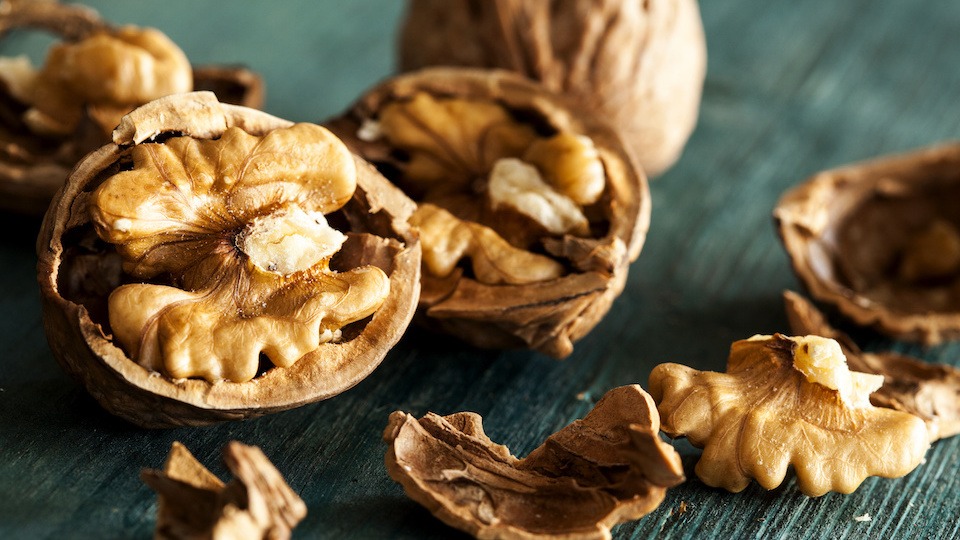Brace yourself…I’m gonna use the “F-word” today. You might think it’s ugly, obscene, indecent, offensive, or vulgar, but it’s something we can all relate to and, therefore, something we need to be able to talk freely about. And in case you were concerned about me cursing here on the UpWellness blog today- don’t worry, the f-word in this article is FAT. And whether it’s on our bodies or in our food supply, fat is entirely misunderstood. And I hope that this article by my team helps to set the record straight.
Enjoy,
-JL
Yes, it is true; eating fat does not make you fat. There is one caveat; however, the fat must come from a healthy source. There is much confusion around these healthy fats, and some of this stems from the fact that fat has nine calories per gram and carbohydrates and protein have four each per gram. Yes, this means that fat has more than twice the amount of calories per unit volume, but this does not make healthy fats bad. Keep in mind that fewer calories do not mean better calories. Dietary fats are essential for energy and to support the growth of cells. In addition, they help to protect your organs and keep your body warm. Fats also help produce hormones and help your body digest essential nutrients.
Why are plant-based fats superior?
Low-fat diets are a thing of the past, avocado toast is the breakfast of choice, and people are adding coconut oil to their coffee. But what type of fat is really the best to add to your already healthy diet? Let’s do a deep dive to find out.
Fats that come from plants are far superior for your health than fats that come from animals. Plant-based fats contain mostly monounsaturated and polyunsaturated fats, while animal fats contain more saturated fats. Monounsaturated fats from plants are heart-protective and can lower cholesterol. In addition, oils rich in monounsaturated fats contain vitamin E, which is an incredibly powerful antioxidant. Polyunsaturated fats are found mostly in plant-based foods and contain omega-3 fatty acids, which are beneficial for heart health.
In a study by Harvard researchers, consuming plant-based fats and a reduction of saturated fats decreased the risk of death by 16%. The study also showed that consuming more animal-based fats increased the risk of dying by 21%. This alone should be cause enough to switch to plant-based fats only.
Here are the healthiest plant-based fats to consume:
- Avocados – Avocados are rich in both monounsaturated and polyunsaturated fats, with more monounsaturated fats than polyunsaturated. A medium-sized avocado contains 15 grams monounsaturated fat. Eating avocados can help to manage your blood sugar and lower cholesterol. Avocados are not only a great source of healthy fat, but they are also rich in fiber. Add avocados to salads, soups, smoothies, or simply eat them right out of the skin with a little sea salt!
- Chia seeds – Although this seed is tiny, it is also mighty. Two tablespoons of chia seeds provide 8.6 grams of total fat. Of this fat, 6.5 grams are polyunsaturated. Chia seeds are also loaded with fiber to keep your gut healthy. Add seeds to smoothies, baked goods oatmeal, or even salads and soups.
- Flaxseeds – Like chia seeds, flaxseeds pack a mighty nutritional punch, even though they are tiny. They are one of the richest plant-based sources of alpha-linolenic acid (ALA). ALA is essential for brain health and artery health. Flaxseeds have powerful anti-inflammatory properties, reduce the risk of cardiovascular disease, and can decrease the risk of cancer. Flaxseeds can be easily added to almost anything and can also be ground, which increases their versatility. Add them to smoothies, yogurt, fruits, vegetables, or use in baking.
- Walnuts – Interestingly enough, walnuts sort of look like brains and are also highly beneficial for brain health. Walnuts have robust anti-inflammatory properties due to their high omega-3 content. They contain polyunsaturated fatty acids, which help to reduce cytokines in the body – which encourage inflammation. Munch on walnuts as a snack, add them to your smoothie, or make homemade trail mix or nut butter.
- Extra virgin olive oil – Extra virgin olive oil (EVOO) is loaded with health benefits and is a popular addition in the Mediterranean diet. Olive oil is high in monounsaturated fat (mostly oleic acid). This monounsaturated fat has anti-cancer benefits when consumed regularly. Extra virgin olive oil has strong anti-inflammatory properties, which can decrease inflammation in the body in a way similar to ibuprofen. Olive oil is easy to use – just don’t cook with it, as it has a low smoke point. Use it to make homemade salad dressings, pestos, and to drizzle over rice or pasta.
- Cacao nibs – Cacao nibs are the raw form of chocolate – yummy! However, cacao nibs are not the same as what you get with milk chocolate, but they do provide a healthy serving of plant-based fat. In just one ounce, you will find 12 grams of fat (a mix of monounsaturated and saturated). Cacao nibs are also high in antioxidants and magnesium. Add these little treasures to smoothies yogurt, oatmeal, or even use them in your homemade trail mix.
Are you ready to start adding scrumptious, healthy plant-based fats to your diet?
-The UpWellness Team









